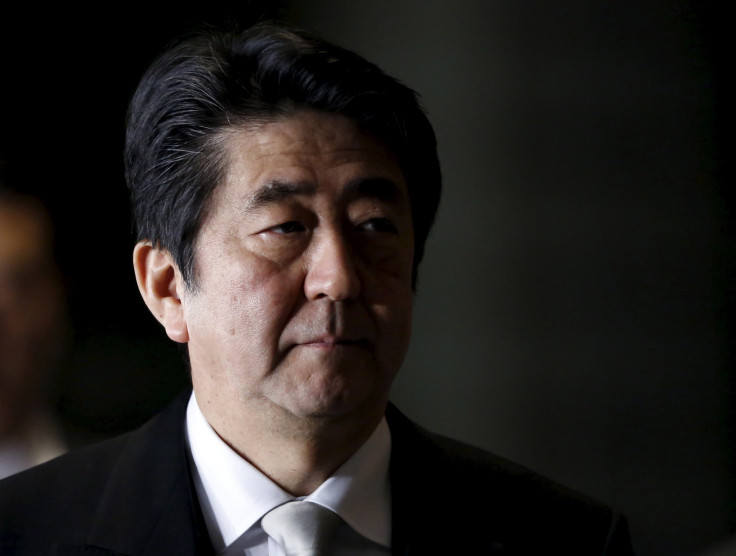Japan GDP Shrinks More Than Expected, Putting Pressure On ‘Abenomics,’ Bank Of Japan

Japan’s economy contracted more than expected in the fourth quarter, putting added pressure on the government or Bank of Japan to take further steps to save Prime Minister Shinzo Abe’s “Abenomics” program. The Bank of Japan already cut interest rates to below zero last month to get banks to lend more.
The economy shrank by an annualized 1.4 percent, according to the Cabinet Office. That compares with the 0.8 percent median estimate of economists in a Bloomberg survey.
Abe came to office in 2012 vowing to get Japan out of two decades of stagnation and deflation. He named Haruhiko Kuroda, the former president of the Asian Development Bank, to head the BOJ in 2013. They had some initial success, most notably in weakening the yen, which helped automakers and other parts of the export-oriented economy. A weaker yen also makes imports expensive, which boosts inflation, which is supposed to encourage businesses and consumers to buy now instead of putting it off.
In the fourth quarter, private spending fell 0.8 percent, indicating Abe’s and Kuroda’s efforts have yet to succeed, Reuters said. One possibly culprit: The yen has been rising since late last year as global economic turmoil -- much of it related to China’s slowdown and oil’s slump -- sent global investors to perceived safe assets like Japanese government bonds. Inflation, which Kuroda has been trying to get to 2 percent, is back close to zero, giving consumers less incentive to buy now.
The slowdown in China -- Japan’s biggest trading partner -- has had a direct effect too, Bloomberg said.
“Consumption was weak ... as households tightened their purse strings,” said Yuichi Kodama, chief economist at Meiji Yasuda Life Insurance Co. in Tokyo, Bloomberg reported. “The downside risks to Japan’s economy are likely to increase as the yen’s gains may damp capital spending and exports, and private consumption also is looking weak. There’s no clear driver to support Japan’s economy.”
That may put the ball back in the Bank of Japan’s court. Cutting its interest rates to below zero caught markets by surprise but was eventually overshadowed by foreign funds continuing to flow into government bonds. Stocks climbed on speculation of more stimulus.
“There’s a high chance that the BOJ may take additional easing at the next meeting in March,” Masamichi Adachi, an economist at JPMorgan Chase & Co. and a former central bank official, said before the GDP data was released, Bloomberg reported.
The weak economy may bode badly for Abe, as the country heads to upper house elections by late June, the New York Times said.
© Copyright IBTimes 2024. All rights reserved.




















